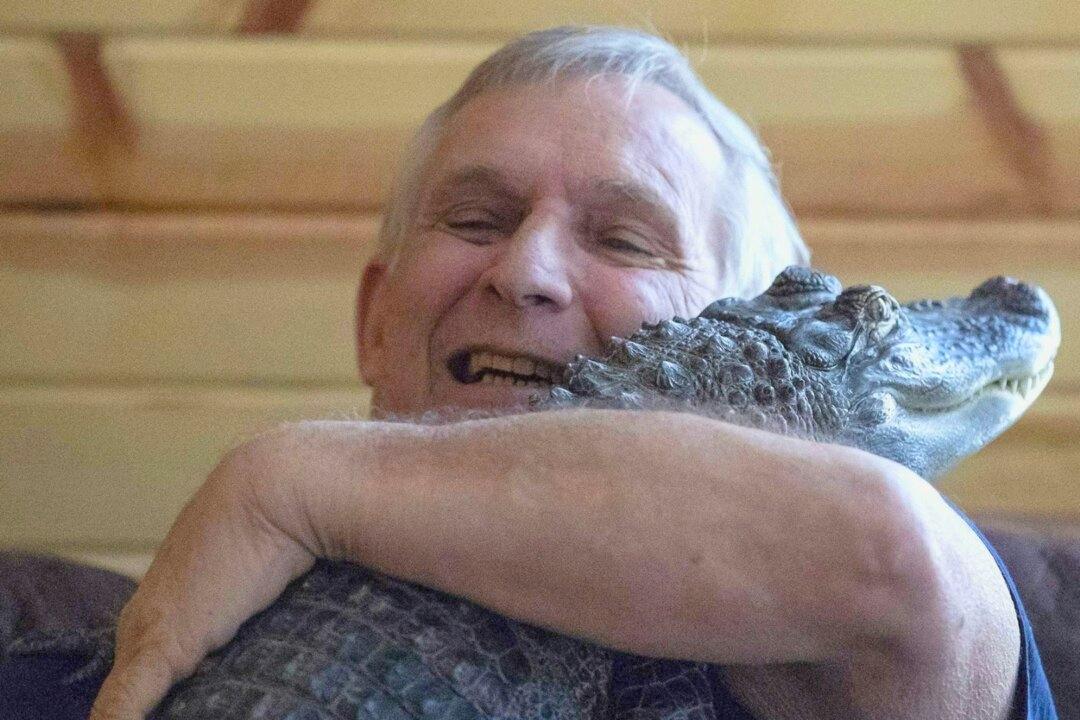YORK HAVEN—A Pennsylvania man says his emotional support alligator helps him deal with his depression.
Joie Henney, 65, said his registered emotional support animal named Wally likes to snuggle and give hugs, despite being a 5-foot-long alligator. The York Haven man said he received approval from his doctor to use Wally as his emotional support animal after not wanting to go on medication for depression, he told Philly.com.






